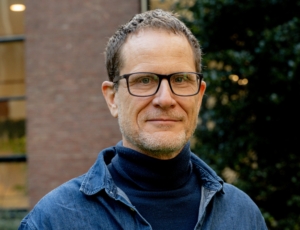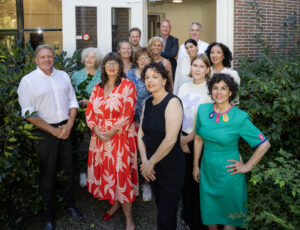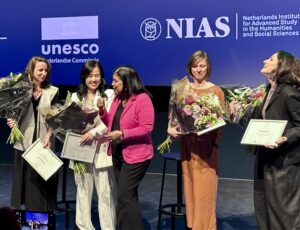How do we learn to count and listen to music? In a NIAS Seminar on 24 May, Johan Rooryck and Henkjan Honing will discuss the cognitive qualities that we share with other animals, and the ones that are uniquely human.
About the Seminar
In this seminar, Johan Rooryck and Henkjan Honing will present some aspects of the Horizon research project Knowledge and Culture that they recently submitted to NWO for funding. In this project, they intend to study the relationship between innate cognitive capacities that are not specific for humans, so-called core knowledge systems, and innate cognitive capacities that are uniquely human, such as language and music.
Johan Rooryck on Numbers:
The core knowledge system for number, for instance, has been argued to contain two nonverbal subsystems that are present in both newborn infants and animals. The Approximate Number System (ANS) compares the numerosities of distinct sets without individuating their members. The Object Tracking System (OTS) yields representations of small numbers of objects, i.e. 1 to 3 (perhaps 4), and does not work on sets larger than 4. Linguistic evidence suggests that the split between OTS and ANS is reflected in the language system, and that children acquire numbers in a sequence.
Henkjan Honing on Music:
We have known for some time that babies possess a keen perceptual sensitivity for the melodic, rhythmic and dynamic aspects of speech and music: aspects that linguists are inclined to categorize under the term ‘prosody’, but which are in fact the building blocks of music. Only much later in a child’s development does he make use of this ‘musical prosody’, for instance in delineating and subsequently recognizing word boundaries.
Henkjan Honing will make a case for ‘illiterate listening’, the human ability to discern, interpret and appreciate musical nuances already from day one, long before a single word has been uttered, let alone conceived. It is the preverbal and preliterate stage that is dominated by musical listening.
The lecture is followed by an open discussion.
About the Speakers
Johan Rooryck is the Distinguished Lorentz Fellow 2011/12, and Henkjan Honing holds a KNAW-Hendrik Muller Chair in Music Cognition and is Professor of Cognitive and Computational Musicology at the University of Amsterdam.



